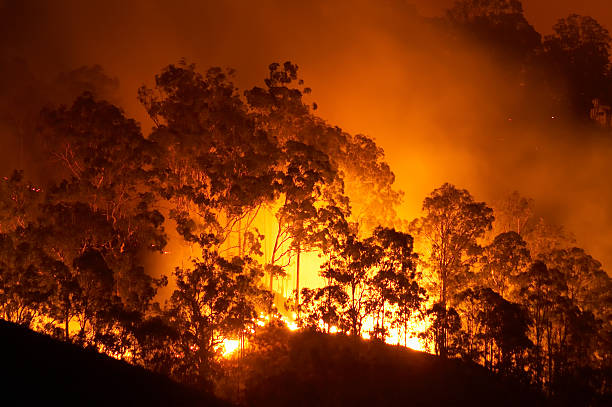Fire Management
Wildfires are becoming more intense and more frequent, ravaging communities and ecosystems in their path. Recent years have seen record-breaking wildfire seasons across the world from Australia to the Arctic to North and South America. With global temperatures on the rise, the need to reduce wildfire risk is more critical than ever.
While wildfires in forests only account for 5 percent of the Earth’s burned area, they contribute to more than 80 percent of wildfire greenhouse gas emissions.
Indigenous and traditional knowledge must be prioritized as integral to fire management
Ecosystem restoration is important to mitigate the risk of wildfires before they occur and to build back better in the aftermath.
Direct responses to wildfires typically receive over half of the related expenditures, while planning and recovery receive less than 1% .
We need a shift in how Governments invest in fire management with a focus on planning and prevention.

Key messages
Damaging forest fires are symptomatic of an imbalance in natural systems exacerbated by human interventions. Unless we work to prevent them, wildfires could become one of the most important accelerators of deforestation.
[i] A mutually reinforcing cycle of climate change and wildfire is emerging. Wildfires increase degradation through their impacts on forest ecosystems, and degradation contributes to wildfires in altered and secondary forests with exposed fuels, invasive species and recurring fires, and associated impacts on forest health.
[ii] Available data shows a trend of increasing frequency and intensity of uncontrolled fires adversely affecting biodiversity, ecological services, human well-being and livelihoods and national economies.
[iii] Extreme wildfires are the result of past and present policy, planning and governance decisions that, coupled with increasingly adverse weather conditions due to climate change, create the conditions for fires to ignite and spread across landscapes beyond societies’ capacity to suppress them. Immediate action is required to prevent extreme wildfires where possible and limit the disastrous results of such events.
[iv]The impacts of extreme wildfires can be significantly reduced with the right approaches such as integrated fire management and investments in wildfire prevention. Application of such approaches, tools and technologies is more cost-effective than fighting larger and fast-spreading wildfires.
Sources
- Average on the 2000-2017 period, calculated from data of the FAO Global Forest Resource Assessment platform, ©FRA 2020
- Global fire challenges in a warming world. Summary Note of a Global Expert Workshop on Fire and Climate Change. IUFRO Occasional Paper. Paper presented at Global Expert Workshop on Fire and Climate Change, December 2018, Vienna.